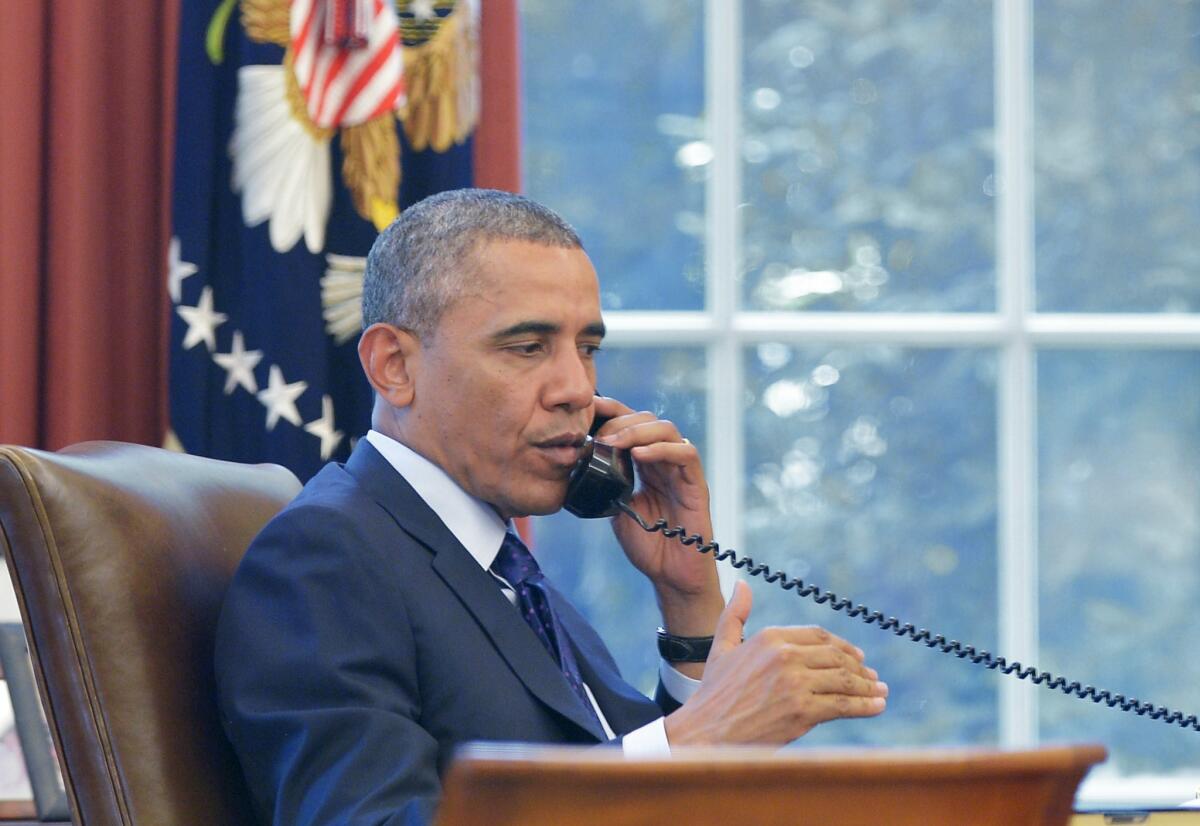Obama says his new carbon regulation is about ‘health of our kids’

- Share via
Reporting from Washington — President Obama began a campaign for his newly proposed climate change proposal with an appeal Monday to parents and grandparents worried about “the health of our kids and the health of our planet.”
In an afternoon conference call with the American Lung Assn. and other public health groups, Obama argued that restrictions on power plant emissions would help children with asthma and other health problems exacerbated by carbon pollution.
A mother with a sick kid can control dust in her home and exposure to allergens, Obama said, “but she can’t control the pollution.”
“For the sake of our children,” he said, “we’re going to have to do a little more.”
In his first public comments about the plan, Obama brushed off complaints from critics that “these guidelines will kill jobs or crush the economy.”
“These claims are debunked when you actually give workers and businesses the tools that they need to innovate,” Obama said, pointing to the technological advances in fuel-efficient cars and appliances encouraged by government over the past few years.
“In America,” he said, “we do not have to choose between the health of our economy and the health of our kids.”
He placed the call from the Oval Office, making it his only public business on Monday before leaving for a week in Europe.
With the new proposal, Obama hopes to cut greenhouse gases by 30% from their 2005 level by 2030.
The unveiling on Monday begins a one-year period of comment and review, during which business interests and advocates will lobby for change. As expected, it set off a fresh debate over the wisdom of the regulation.
Business leaders and Republican skeptics began to critique the particulars of the plan. Before the rule was unveiled, the U.S. Chamber of Commerce estimated it would cost the economy $50 billion annually.
The EPA, meanwhile, said that, in the year 2030, the reductions in carbon pollution would result in “net climate and health benefits of $48 billion to $82 billion,” according to the agency’s proposal.
Administration officials also argued that the plan is sensitive to the special needs in some heavily coal-reliant states. The plan is designed give each state a menu of options for meeting their specific targets, officials pointed out, noting that each is based on the particular state’s fuel mix.
More to Read
Sign up for Essential California
The most important California stories and recommendations in your inbox every morning.
You may occasionally receive promotional content from the Los Angeles Times.













